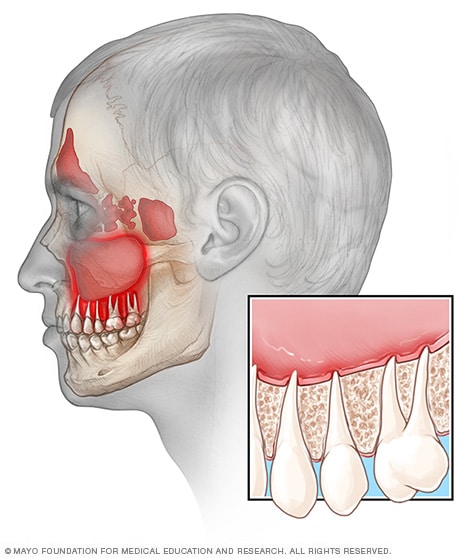The nose is right above the mouth. When it comes to the face, they’re essentially neighbors. But is there such a thing as sinus infection tooth pain? It turns out there is. That mild toothache that you are having might be dental related, but there is also a possibility it might be caused by your sinus. In this article, we’ll talk about how a cold, flu, allergies, or sinus infection can cause tooth pain, and what you need to know.
How Can a Sinus Infection Cause Tooth Pain? The Relationship Between the Teeth and the Sinus

It might seem a little crazy. How can a sinus infection cause tooth pain? However, it comes down to architecture. The architecture of the sinus cavities.
The sinus cavities are four air-filled spaces that are involved in our nasal tract. The sinuses reside in the areas behind your eyes, cheekbones, forehead. And yes, directly above the palate.
The purpose of the sinus is to warm, dampen, and filter air as it enters the body. At all times there’s a normal amount of mucus that resides in the cavities. The purpose is to collect debris and serve as the first line of defense for the immunes system to fight pathogens entering the body—essentially a form of motte around the castle.
Normally, you wouldn’t notice the sinuses or the mucus within them for that matter. But as we all know, when you get a cold, the sinuses get stuffed. Great, just what you want right?
Well as your body tries to fight infection of the sinuses, the immune system goes on the attack. And when on heightened alert, one of the first mechanisms the body takes is to produce more mucus. Suddenly the sinus membranes become irritated.
Because the sinuses are pretty much a closed space, there’s not much room to release pressure. As mucus builds, pressure builds. And where is that pressure felt?
The adjacent structures. Ahem, the upper teeth.
The feeling of sinus infection tooth pain during and a couple of weeks after sinus congestion is common. In a large part of the population, the roots of your upper teeth actually partially are in the sinus.
Therefore, pressure on the sinus creates pressure on the teeth. And unfortunately, bingo, you get sinus infection tooth pain.
It doesn’t matter if the sinus pressure was caused by allergies, a cold, a flu, etc. It’s all the same. Pressure in the sinus can cause pressure on the teeth all the same.
How Sinus Infection Tooth Pain compares to a Regular Toothache
Sinus infection tooth pain actually feels quite similar to a mild toothache. That’s what makes the concept confusing to some patients.
Often a patient will see their dentist due to a toothache. The dentist may not find any dental problems, leaving both the dentist and the patient stumped. In these situations, its best to consider trying an antibiotic and give it a week or two to reevaluate before experimenting with any dental treatment.
If you are having trouble determining if your pain is sinus related or tooth-related here are some common symptoms that are associated with sinus infection tooth pain:
- Sensitivity on multiple teeth on the top back of the mouth (not only one tooth)
- Pressure in the area below the eyes when bending over
- Nasal congestion in the past 2 weeks
- Thick, discolored mucus
- Ear soreness
- Sore throat
- Inability to breathe through one nostril
How to Soothe Sinus-Induced Tooth Pain

I know there’s not usually good news in dentistry but here there is. When it comes to sinus infection tooth pain, usually it goes away on its own in a week or two.
Typically no treatment is needed.
But It’s always best to check with your dentist first. If you’re experiencing any type of tooth pain for more than a few days, its good just to check. Your dentist will confirm if there are any other underlying issues causing your pain and may also consider prescribing you an antibiotic to help the pain heal more efficiently.
In the meantime, here are some tips to help soothe sinus infection tooth pain:
- Stay hydrated. Water is one of the best natural remedies to aid our health in fighting disease.
- Utilize NSAIDs. Over the counter anti-inflammatory medications like ibuprofen help to reduce nasal mucus and sinus inflammation.
- Stay up with the vitamins. Calcium and Vitamin C particularly help to reduce histamines and help our improve the efficiency of our bodies immune system
- Consider if its allergies. If your sinus pressure is induced by allergies speak with your PCP and consider an over the counter anti-histamine to help reduce the sinus pressure from the allergies.
- Try a vaporizor. Steam vaporizers and Vicks Vaporub can help open the nasal passages and temporarily soothe sinus pressure in the meantime.
Give it a Little Time—But Not Too Long
Tooth pain related to sinusitis will gradually improve in 1 to 2 weeks.
If your tooth pain is persistently longer than that, it may be time to consult formally with your dentist to have the situation evaluated. Persistent tooth pain may indicate other underlying factors that can cause similar types of pain such as:
- Periodontal disease
- Bruxism
- Dental Decay
- Dental Infection
- Erupting wisdom teeth
- TMJ disorder
For more information on other sources of jaw pain check out this article, and for more information specifically on tooth pain check out this one.


